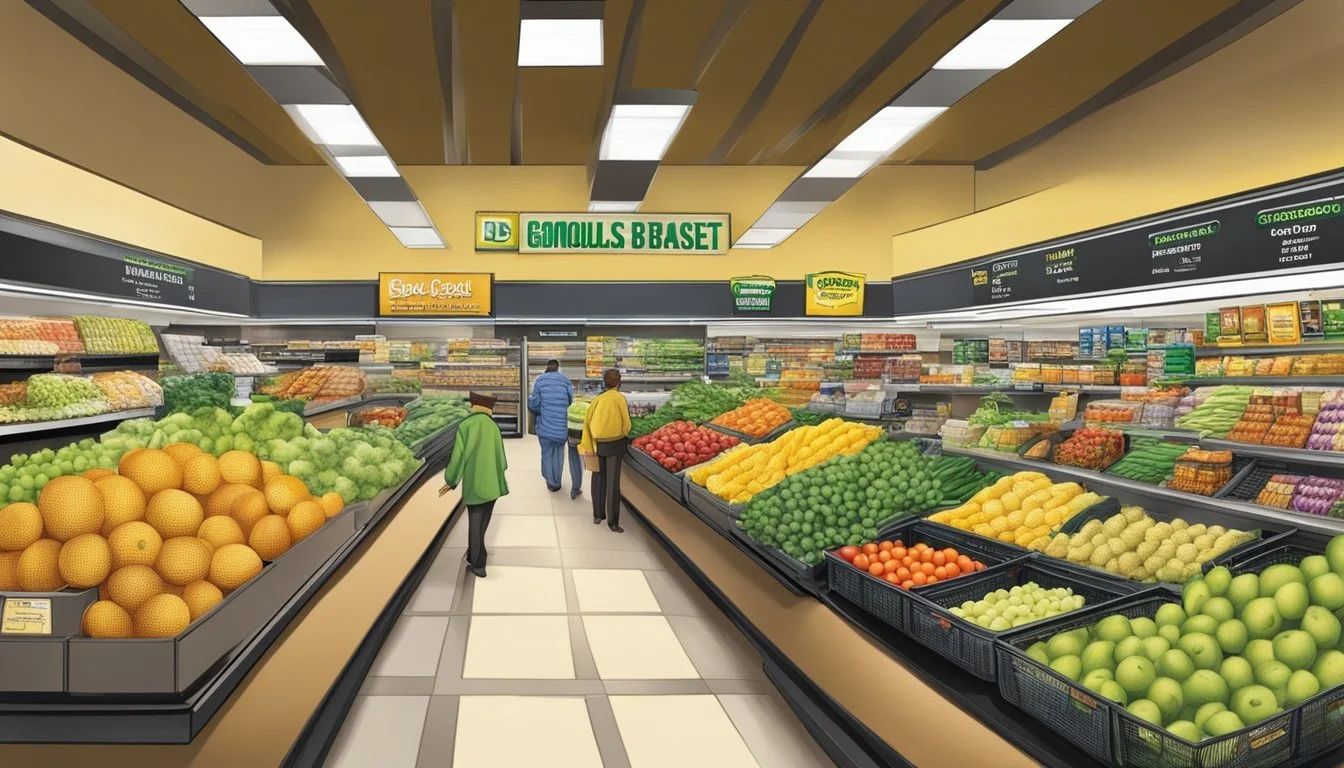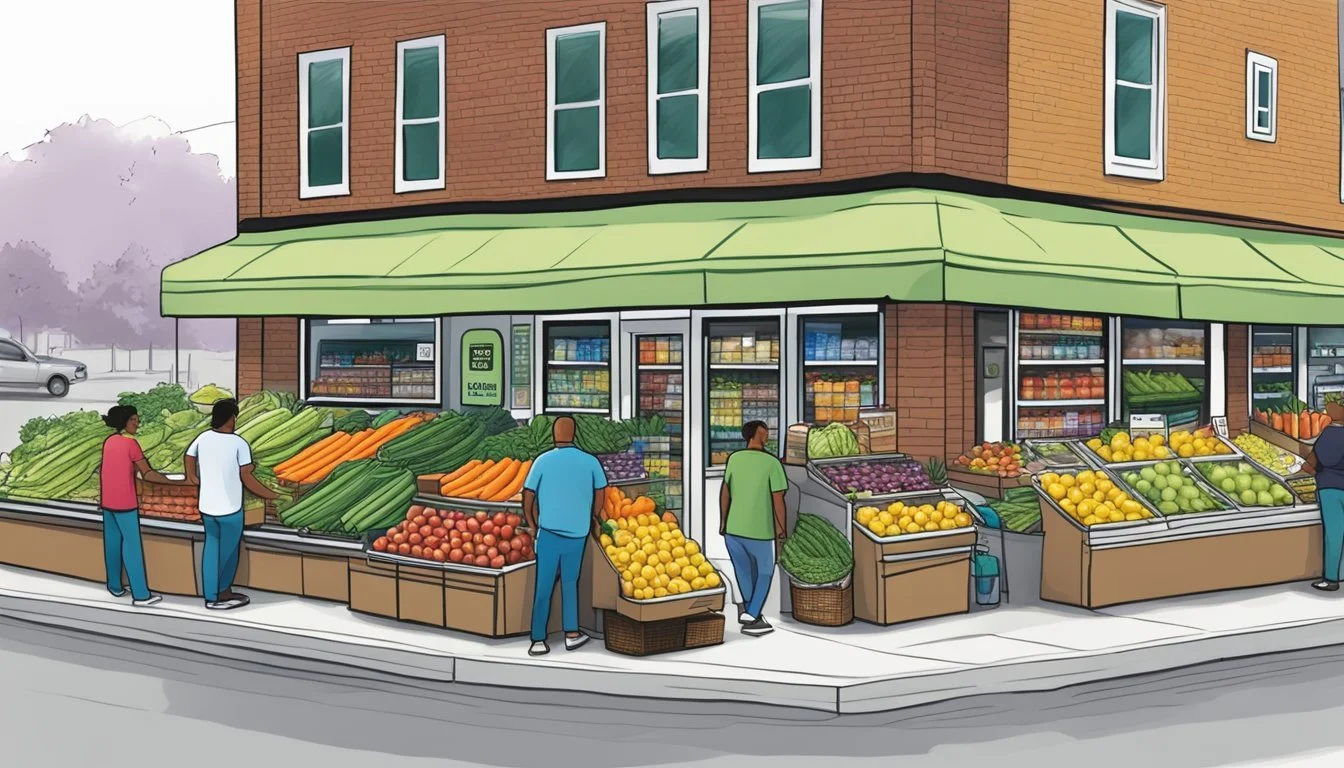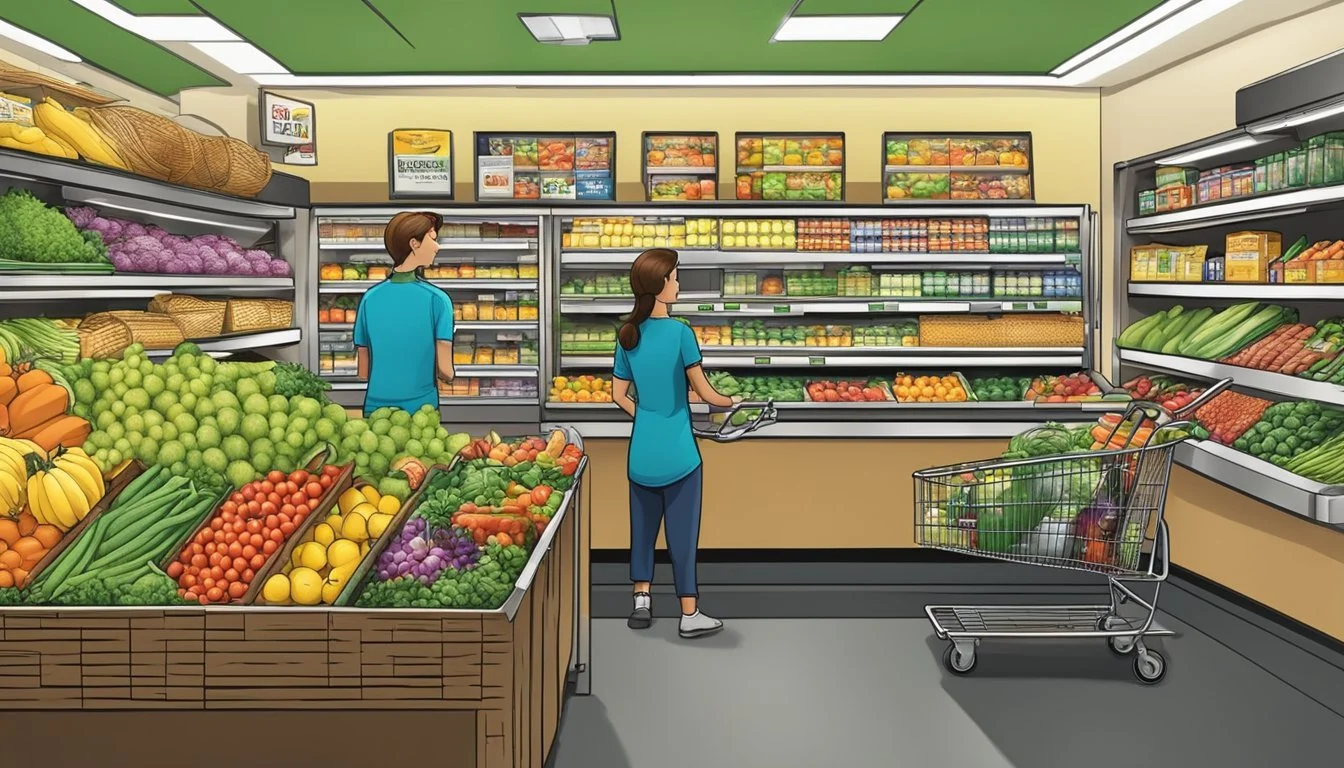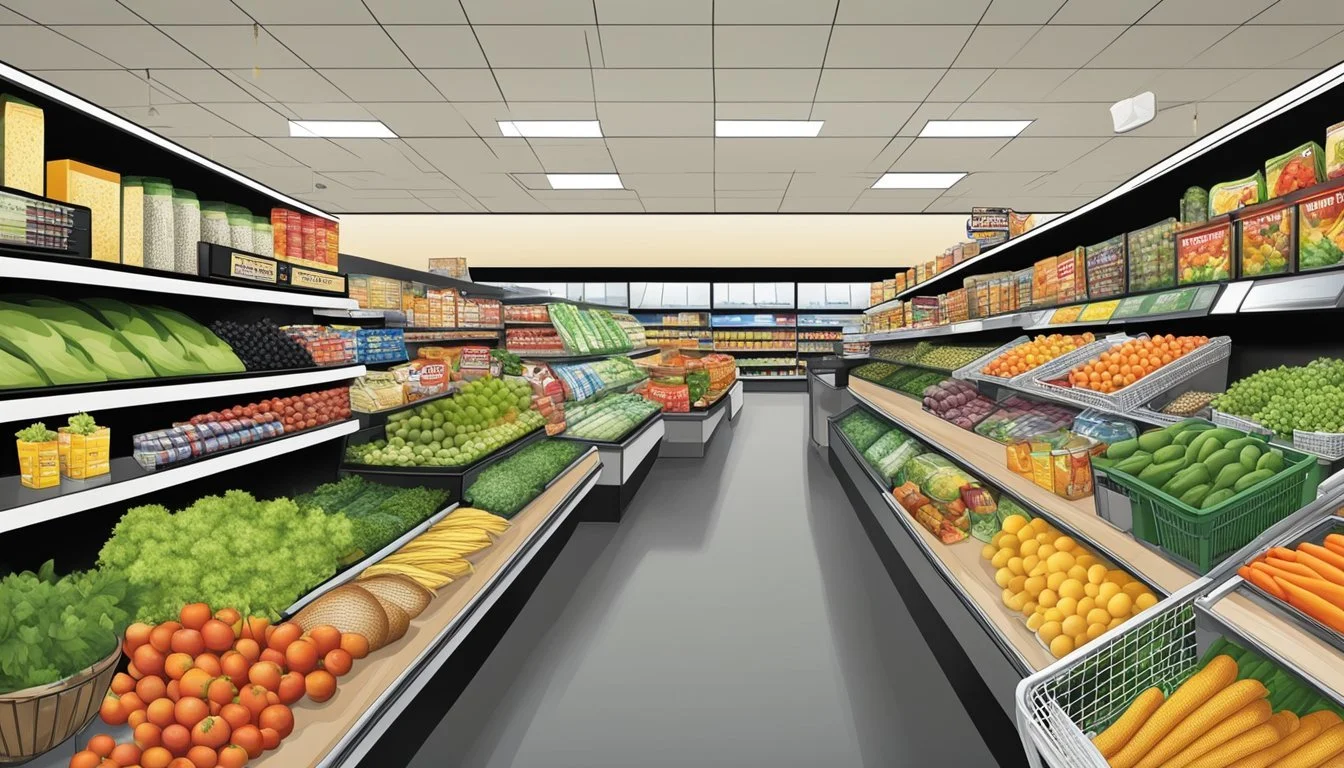Demoulas Market Basket vs Dollar General
Comparing Prices, Quality, and Selection
Market Basket and Dollar General represent two distinct approaches to grocery retail in the United States. Market Basket, a regional chain primarily operating in New England, has built a reputation for low prices and high-quality products. Dollar General, on the other hand, is a nationwide discount retailer known for its affordability and convenience.
Market Basket consistently outperforms larger competitors in terms of customer satisfaction and price competitiveness. A 2022 study by consumer data firm Dunnhuby ranked Market Basket as the top grocery store for affordability and quality, surpassing over 60 other chains. This family-owned business has maintained its commitment to value through decades of operation.
Dollar General takes a different approach, focusing on small-format stores in rural and urban areas. While not a traditional full-service grocer, Dollar General offers a mix of grocery staples and household goods at discount prices. The company's rapid expansion has made it a ubiquitous presence in many communities, providing access to affordable goods where other retailers may not operate.
Company Histories and Values
Demoulas Market Basket and Dollar General have distinct origins and core values that have shaped their development over the years. Both companies have navigated family dynamics and economic challenges to become major players in the grocery retail sector.
The Legacy of Demoulas Market Basket
Demoulas Market Basket traces its roots to 1954 when brothers Telemachus and George Demoulas purchased their parents' grocery store in Lowell, Massachusetts for $15,000. The company remained family-owned, with Arthur T. Demoulas eventually taking the helm as CEO.
Under Arthur T.'s leadership, Market Basket expanded across New England while maintaining a reputation for low prices and employee loyalty. The chain now operates 71 stores, primarily in Massachusetts and New Hampshire.
Market Basket's commitment to its workforce was dramatically demonstrated in 2014. When Arthur T. was ousted as CEO, employees and customers staged protests that emptied store shelves and cost the company millions in lost sales. This unprecedented show of support ultimately led to Arthur T.'s reinstatement.
The Growth of Dollar General
Dollar General's story began during the Great Depression when J.L. Turner and his son Cal opened their first store in Kentucky in 1939. The company adopted the Dollar General name in 1955 and has since grown into one of the largest discount retailers in the United States.
Dollar General went public in 1968 and has changed ownership several times, including a period of ownership by private equity firm Blackstone Group. Today, it operates over 18,000 stores across 47 states.
The company's rapid expansion has been driven by its focus on providing everyday essentials at low prices, particularly in rural and underserved communities. Dollar General's "more for your dollar" approach has resonated with value-conscious shoppers, contributing to its consistent growth over the decades.
Store Operations and Expansion
Market Basket and Dollar General employ distinct operational strategies to drive growth and manage costs. These approaches shape their store experiences, pricing, and expansion efforts.
Market Basket's Approach to Operations
Market Basket focuses on employee satisfaction and customer loyalty. The company offers profit-sharing and competitive wages to its workforce. This strategy helps reduce turnover and maintain a knowledgeable staff.
Market Basket keeps operating costs low by limiting advertising and embracing a no-frills store design. These savings are passed on to customers through lower prices. The chain's expansion is measured, primarily concentrating on its core New England market.
Market Basket stores are typically larger format, offering a wide selection of groceries and fresh produce. The company maintains strong relationships with local suppliers to ensure quality and competitive pricing.
Dollar General's Operational Strategy
Dollar General pursues aggressive expansion, opening thousands of new stores annually. The company targets rural and low-income areas often underserved by larger retailers. This strategy allows Dollar General to capture market share in regions with limited competition.
Dollar General's stores are smaller, with a focus on convenience and low prices. The company keeps costs down through efficient supply chain management and a limited product selection. Many stores operate with minimal staff to further reduce expenses.
To boost profitability, Dollar General is expanding its DG Market concept. These stores offer a larger selection of fresh groceries while maintaining the company's low-price model. This initiative aims to capture a larger share of customers' grocery spending.
Product Quality and Selection
Market Basket and Dollar General offer distinct product assortments tailored to their target customers. The two retailers diverge in their focus on fresh foods, name brands, and private labels.
Market Basket's Product Offerings
Market Basket emphasizes high-quality fresh foods and groceries. Their produce department features a wide variety of fruits and vegetables sourced from local farms when possible. The meat counter offers fresh cuts and poultry, while the deli provides sliced meats, cheeses, and prepared foods.
Market Basket's dairy section stocks milk, yogurt, and cheese from regional dairies. The bakery produces fresh breads and pastries daily. Frozen foods include both name-brand and private label options.
The store carries an extensive selection of national brand groceries alongside their own Market Basket label products. Household items and non-food essentials round out their merchandise mix.
Dollar General's Merchandise Mix
Dollar General's product selection centers on shelf-stable groceries and household goods at low prices. Their "DG Market" format expands fresh offerings, but produce and perishables remain limited compared to traditional supermarkets.
The store stocks a curated assortment of popular national brands. Private label items feature prominently across categories like snacks, canned goods, and cleaning supplies. Frozen foods focus on convenient meal solutions.
Dollar General carries basic dairy products like milk and cheese. Their non-food selection includes health and beauty items, cleaning products, and home goods. The mix caters to quick fill-in trips and value-conscious shoppers.
Customer Experience and Service
Market Basket and Dollar General offer distinct customer experiences, each with its own approach to service and in-store atmosphere. These differences significantly impact customer satisfaction and loyalty.
Market Basket's Customer Service Model
Market Basket prioritizes personalized service and customer relationships. Staff members are known for their friendliness and willingness to assist shoppers. The company invests in employee training, emphasizing product knowledge and courteous interactions.
Market Basket stores often feature full-service checkout lanes staffed by attentive cashiers. This approach fosters a sense of community and builds customer loyalty. Many shoppers appreciate the personal touch and helpful attitude of Market Basket employees.
The chain's commitment to customer service extends to its product offerings. Market Basket strives to stock items that cater to local preferences, demonstrating responsiveness to customer needs.
In-Store Experience at Dollar General
Dollar General focuses on convenience and efficiency in its customer service model. The stores are designed for quick, hassle-free shopping experiences. Many locations feature self-checkout options, allowing customers to complete their purchases swiftly.
The layout of Dollar General stores is typically compact and easy to navigate. Products are organized in a straightforward manner, enabling shoppers to find what they need quickly. This approach caters to customers who value speed and convenience in their shopping trips.
Staff at Dollar General are trained to be helpful when needed, but the emphasis is on maintaining a streamlined shopping environment. The company's service model aims to provide a balance between assistance and efficiency.
Dollar General's approach to customer service aligns with its target market of budget-conscious shoppers seeking affordable goods in convenient locations.
Financial Performance and Strategies
Market Basket and Dollar General employ distinct financial approaches, reflecting their unique market positions and growth strategies. Both companies have demonstrated resilience and adaptability in a competitive retail landscape.
Market Basket's Economic Resilience
Market Basket, a privately held company, has built a reputation for financial stability. The company's focus on customer loyalty and employee satisfaction has translated into strong economic performance. Market Basket's revenue growth has remained steady, despite not pursuing aggressive expansion strategies like some competitors.
The company's profit margins benefit from efficient operations and a lean management structure. Market Basket's debt levels are reportedly low, allowing for financial flexibility. While specific financial figures are not publicly available due to its private status, industry analysts consistently note the company's robust financial health.
Market Basket's trust-based approach with customers and employees has created a unique business model that contributes to its economic resilience.
Dollar General's Financial Health
Dollar General has demonstrated impressive financial performance in recent years. The company's net sales grew 6.1% to $9.91 billion in a recent quarter, slightly exceeding market expectations. This growth was partly driven by the opening of 197 new stores during that period.
Dollar General's expansion strategy is aggressive, with plans to open 1,050 stores in 2023. The company has achieved 33 consecutive years of same-store sales growth, a remarkable feat in the retail sector. In 2022, Dollar General's sales increased by 10.6%.
The company's financial health is further evidenced by its investment plans. Dollar General intends to allocate approximately $100 million to store improvements in 2023, signaling confidence in its future growth prospects.
Dollar General's dividend policy has also been favorable to investors, though specific dividend figures were not provided in the search results.
Controversies and Challenges
Both Market Basket and Dollar General have faced significant internal and external challenges that impacted their operations and public image.
Market Basket's Internal Disputes
Market Basket experienced a major leadership crisis in 2014. Arthur T. Demoulas, the company's popular president, was ousted by the board of directors led by his cousin Arthur S. Demoulas. This sparked massive protests and a widespread employee strike.
Workers and customers boycotted Market Basket stores, demanding Arthur T.'s reinstatement. The dispute stemmed from a long-standing family feud over ownership and control of the company.
The six-week standoff caused significant disruption to Market Basket's operations and supply chain. It garnered national attention and public support for the employees.
Eventually, Arthur T. and his allies purchased the majority stake in the company, ending the conflict. The event highlighted the strong loyalty of Market Basket's workforce and customer base.
Legal and Community Issues Involving Dollar General
Dollar General has faced numerous legal challenges and community opposition as it rapidly expanded across the United States. The company has been involved in multiple lawsuits over labor practices and workplace conditions.
Several communities have resisted Dollar General's expansion, citing concerns about the impact on local businesses and economies. Some towns have implemented zoning restrictions to limit the chain's growth.
Dollar General has also faced accusations of predatory pricing and selling outdated or low-quality products. The company settled a lawsuit in 2019 for allegedly selling obsolete motor oil.
Critics argue that Dollar General's business model targets low-income areas and contributes to food deserts by offering limited fresh food options. These controversies have led to increased scrutiny of the company's practices and community impact.
Conclusion and Future Outlook
Demoulas Market Basket and Dollar General cater to different customer segments with distinct strategies. Market Basket focuses on competitive pricing and quality products, while Dollar General emphasizes convenience and affordability.
Market Basket's loyal customer base appreciates its low prices and community-oriented approach. The chain's future may involve expanding its footprint while maintaining its core values.
Dollar General's rapid expansion and DG Market format demonstrate its adaptability to changing consumer needs. The company's growth trajectory suggests continued expansion into fresh groceries and rural areas.
Both retailers face challenges in adopting new technologies and e-commerce platforms. Market Basket's website offers limited functionality, while Dollar General is investing in digital initiatives.
Loyalty programs may play a crucial role in retaining customers. Dollar General's DG Digital Coupons provide savings, whereas Market Basket relies on its reputation for value.
The grocery landscape will likely see increased competition between traditional supermarkets and discount chains. Consumer preferences for affordability and convenience will drive future developments in the industry.








